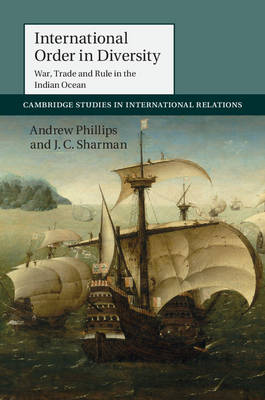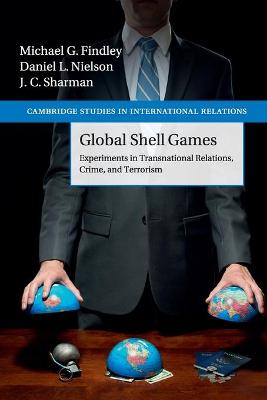Cambridge Studies in International Relations
3 total works
What are international orders, how are they destroyed, and how can they be defended in the face of violent challenges? Advancing an innovative realist-constructivist account of international order, Andrew Phillips addresses each of these questions in War, Religion and Empire. Phillips argues that international orders rely equally on shared visions of the good and accepted practices of organized violence to cultivate cooperation and manage conflict between political communities. Considering medieval Christendom's collapse and the East Asian Sinosphere's destruction as primary cases, he further argues that international orders are destroyed as a result of legitimation crises punctuated by the disintegration of prevailing social imaginaries, the break-up of empires, and the rise of disruptive military innovations. He concludes by considering contemporary threats to world order, and the responses that must be taken in the coming decades if a broadly liberal international order is to survive.
International relations scholars typically expect political communities to resemble one another the more they are exposed to pressures of war, economic competition and the spread of hegemonic legitimacy standards. However, historically it is heterogeneity, not homogeneity, that has most often defined international systems. Examining the Indian Ocean region - the centre of early modern globalization - Andrew Phillips and J. C. Sharman explain how diverse international systems can emerge and endure. Divergent preferences for terrestrial versus maritime conquest, congruent traditions of heteronomy and shared strategies of localization were factors which enabled diverse actors including the Portuguese Estado da India, Dutch and English company sovereigns and mighty Asian empires to co-exist for centuries without converging on a common institutional form. Debunking the presumed relationship between interaction and homogenization, this book radically revises conventional thinking on the evolution of international systems, while deepening our understanding of a historically crucial but critically understudied world region.
Global Shell Games
by Michael G. Findley, Daniel L. Nielson, and J. C. Sharman
Published 23 January 2014
Every year a staggering number of unidentified shell corporations succeed in hiding perpetrators of terrorist financing, corruption and illegal arms trades, but the degree to which firms flout global identification standards remains unknown. Adopting a unique, experimental methodology, Global Shell Games attempts to unveil the sordid world of anonymous shell corporations. Posing as twenty-one different international consultants, the authors approached nearly 4,000 services in over 180 countries to discover just how easy it is to form an untraceable company. Combining rigorous quantitative analysis, qualitative investigation of responses and lurid news reports, this book makes a significant research contribution to compliance with international law and international crime and terrorism whilst offering a novel, new approach to the field of political science research. Global Shell Games is an invaluable resource for scholars of international relations, and a fascinating, accessible read for anyone interested in learning about worldwide criminal practice in corporate finance.


